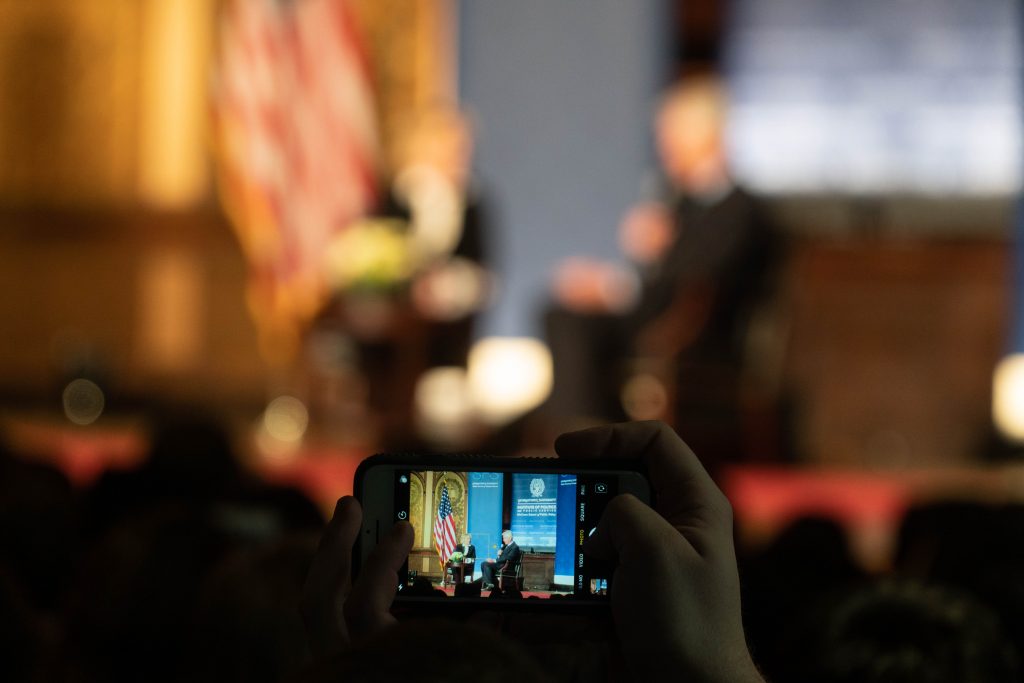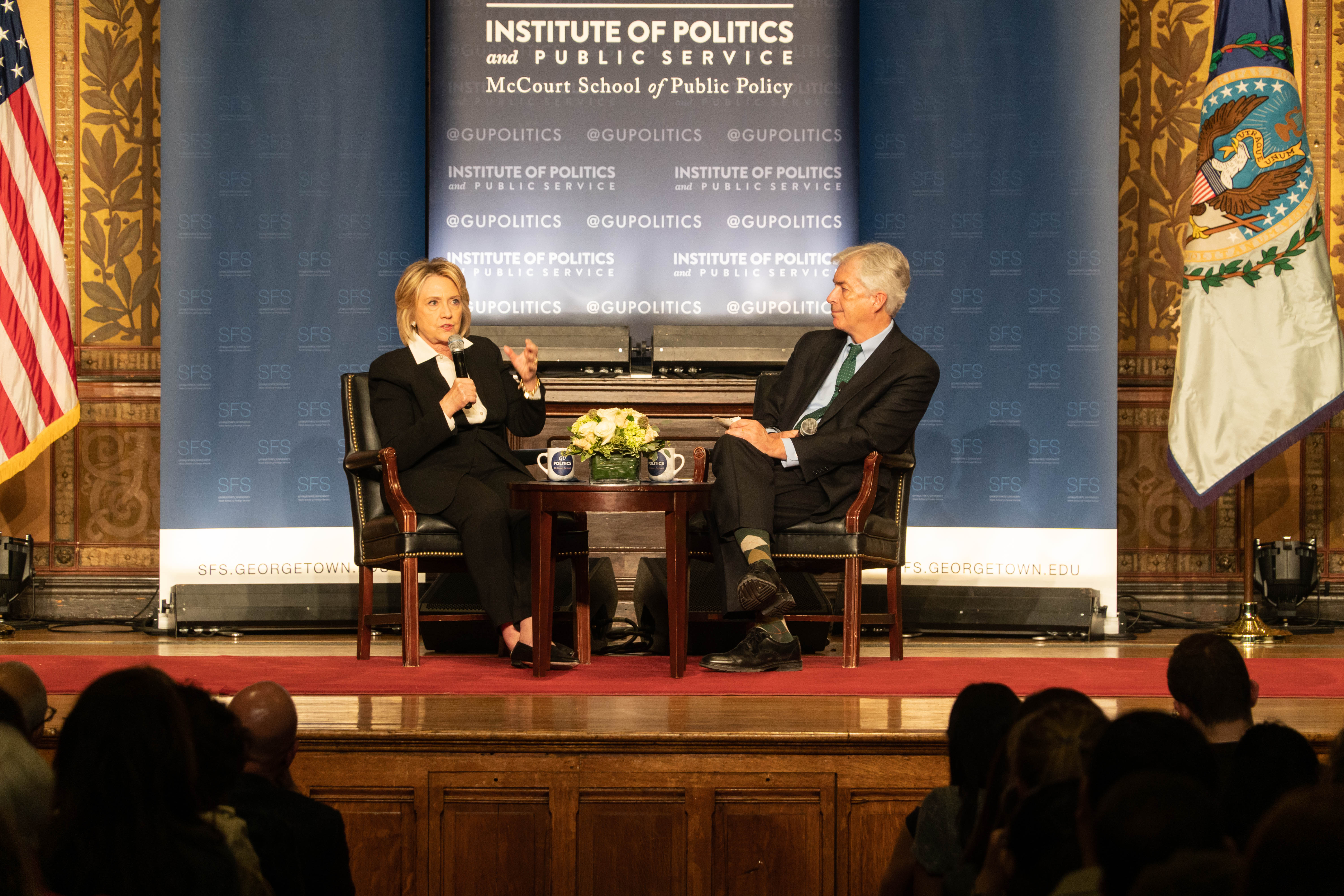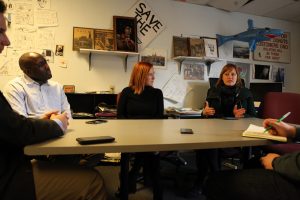Calling for a stronger, smarter, and more valued diplomacy, Hillary Clinton spoke in Gaston Hall in a conversation moderated by former U.S. Deputy Secretary of State Bill Burns.
The event concluded the Feb. 6 symposium on “The Future of Diplomacy,” hosted by the Georgetown Institute of Politics and Public Service at the McCourt School of Public Policy and the SFS. The symposium was part of the SFS’s Lloyd George Centennial Lectures on the Future of the Global Order.
The conversation began with Clinton reflecting on joining the State Department, where she was tasked with restoring the U.S.’s global image after eight years of the war on terror in the Middle East. “I’m going to focus on the economy, you go focus on the world,” Clinton recalled Obama telling her.
As Secretary of State, Clinton said she believed in using a “smart power” approach to diplomacy: knowing when to properly utilize hard power and soft power in a given situation.
She also spoke about her belief in upholding democratic values in diplomacy. “You give up your commitment to furthering universal values,” Clinton said. “You give up a big part of your message and your leverage and your strength in making the case for freedom and democracy and the kind of sustained commitment to the sort of world we want, not only for ourselves, but for everyone.”
Burns noted that this year marks the 70th anniversary of the founding of the North Atlantic Treaty Organization (NATO), and Clinton stressed that the United State’s greatest assets are its alliances, which she believes are the “envy of everyone,” and should not be taken for granted.

Photo by John Picker
“Democracy is going through some growing pains,” she said. “When that happens, we need our friends. We need people that we have worked with and counted on, and I think the division that is being unfortunately driven between the United States and Europe is going to haunt us.”
Clinton referred to the current fragility of organizations like NATO and the European Union (EU), saying it “should be a great concern to any American—I don’t care where you are on the political spectrum.”
She called out Russia as one the disruptive forces in Europe, citing Brexit as an example. “Russia has a stake in disrupting and dismantling the EU and NATO,” she said. “We know. We have seen them try.”
Following the conversation, Clinton answered several questions from students.
Daisy Dunlap (SFS ’22) asked Clinton about her thoughts on the growing trend toward authoritarianism in many parts of the world. Clinton expressed grave concern, especially since she believes the Trump administration has, “demonstrated an affinity toward dictators because they get things done.”
James Bond (SFS ’22) asked about the implications of President Trump pulling out of the Intermediate-Range Nuclear Forces Treaty (INF) and the New Strategic Arms Reduction Treaty, the latter of which Clinton herself helped negotiate. She called these moves a “gift to Putin,” and believes that it will increase diplomatic unpredictability. “The last thing we need is a nuclear arms race.”
Dunlap felt that Clinton’s points exemplified the relevance of diplomacy in today’s political world and how it should be practiced. “[Her] response almost perfectly catalyzed her outlook on the value of diplomacy,“ Dunlap said. “It is slow, it is messy, and it is whole-heartedly necessary.”





